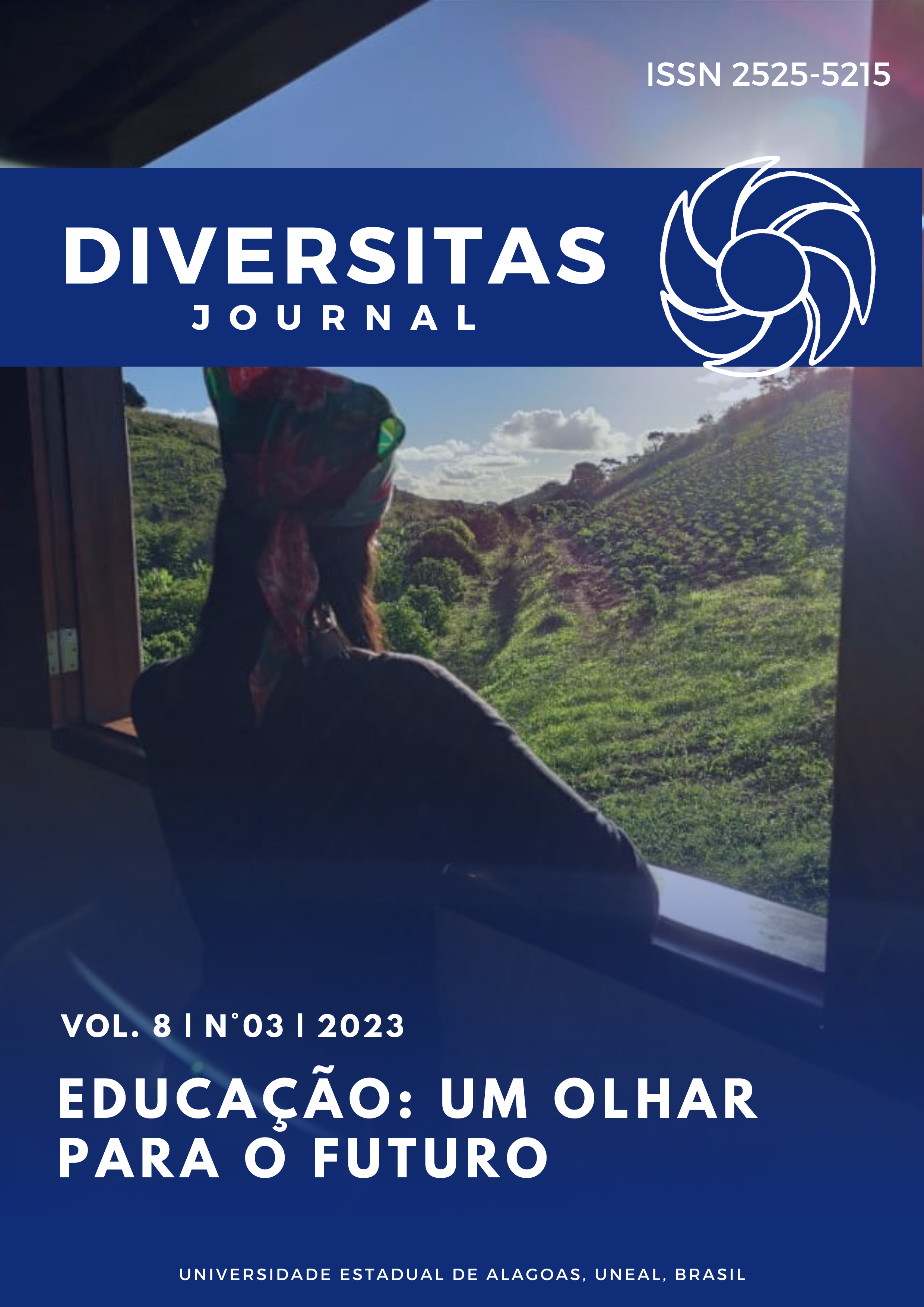Science Teaching by Inquiry
Indicators of Scientific Literacy in distance classes
DOI:
https://doi.org/10.48017/dj.v8i3.2559Keywords:
teaching science by inquiry, scientific literacy, distance classesAbstract
This article aims to analyze which investigative practices emerged in a forum of the discipline “Knowledge and methodology of science teaching 1” of a distance Pedagogy course. As an activity, it was proposed that the students solve the question “investigating the problem of JecaTatu”. Based on qualitative research and content analysis by Bardin (2011), elements of investigative practice were identified in the students' arguments: for example: hypotheses, hypothesis testing, data, production and defense of arguments and explanations. Thus, it was inferred that, as long as they have an issue with scope for collective problematization and the (re)construction of students' cognitive actions, investigative activities are entirely plausible to be successfully worked on in distance science classes.
Metrics
References
Bachelard, G. (1932). Formação do espírito científico: Contribuição para uma psicanálise do conhecimento. Contraponto.
Ministério da Educação. (2017). Base Nacional Comum Curricular: Educação é a base. Secretaria de Educação. http://basenacionalcomum.mec.gov.br/images/BNCC_EI_EF_110518_versaofinal_site.pdf. Acesso em: 08 dez. 2018.
Bardin, L. (2011). Análise de conteúdo. Edições.
Campos, M., Nigro, R., (1999). Didática de Ciências. FTD.
Carvalho, A., Vannucchi, A., Barros, M., Gonçalves, M., Rey, R., (1998). Ciências no Ensino Fundamental: O Conhecimento Físico. Scipione.
Carvalho, A. (2013). Ensino de Ciências Unindo a Pesquisa e a Prática. Pioneira.
Marconi, M., Lakatos, E., (2006). Técnicas de Pesquisa. (6ª ed.). Atlas.
Munford, D.,Lima, M.,(2007). Ensinar Ciências por investigação: Em que estamos de acordo?. Ensaio, v 09 (01), pp. 89-111. http://www.scielo.br/pdf/epec/v9n1/1983-2117-epec-9-01-00089.pdf.
Neves, J., (2007). Pesquisa Qualitativa: Características, usos e possiblidades. Caderno de Pesquisas em administração, v 1 (03), pp. 01-05. https://www.hugoribeiro.com.br/biblioteca-digital/NEVES-Pesquisa_Qualitativa.pdf
Pizarro, M., (2015). Indicadores de Alfabetização Científica: Uma revisão bibliográfica sobre as diferentes habilidades que podem ser promovidas no ensino de Ciências nos anos iniciais. Investigações em Ensino de Ciências, v 20 (01), pp. 208-238. https://www.if.ufrgs.br/cref/ojs/index.php/ienci/article/view/66
Sasseron, L., Carvalho, A., (2008). Almejando a Alfabetização Científica no ensino fundamental: a proposição e a procura de indicadores do processo. Investigações em ensino de Ciências, v 13 (03), pp. 333-352. https://www.if.ufrgs.br/cref/ojs/index.php/ienci/article/view/445/263.
Zompero, A., Laburú, C., (2016). Atividades Investigativas para as aulas de Ciências: Um diálogo com a teoria da Aprendizagem significativa. Appris.
Downloads
Published
How to Cite
Issue
Section
License
Copyright (c) 2023 Liliane Oliveira de Brito

This work is licensed under a Creative Commons Attribution 4.0 International License.
The Diversitas Journal expresses that the articles are the sole responsibility of the Authors, who are familiar with Brazilian and international legislation.
Articles are peer-reviewed and care should be taken to warn of the possible incidence of plagiarism. However, plagiarism is an indisputable action by the authors.
The violation of copyright is a crime, provided for in article 184 of the Brazilian Penal Code: “Art. 184 Violating copyright and related rights: Penalty - detention, from 3 (three) months to 1 (one) year, or fine. § 1 If the violation consists of total or partial reproduction, for the purpose of direct or indirect profit, by any means or process, of intellectual work, interpretation, performance or phonogram, without the express authorization of the author, the performer, the producer , as the case may be, or whoever represents them: Penalty - imprisonment, from 2 (two) to 4 (four) years, and a fine. ”


















